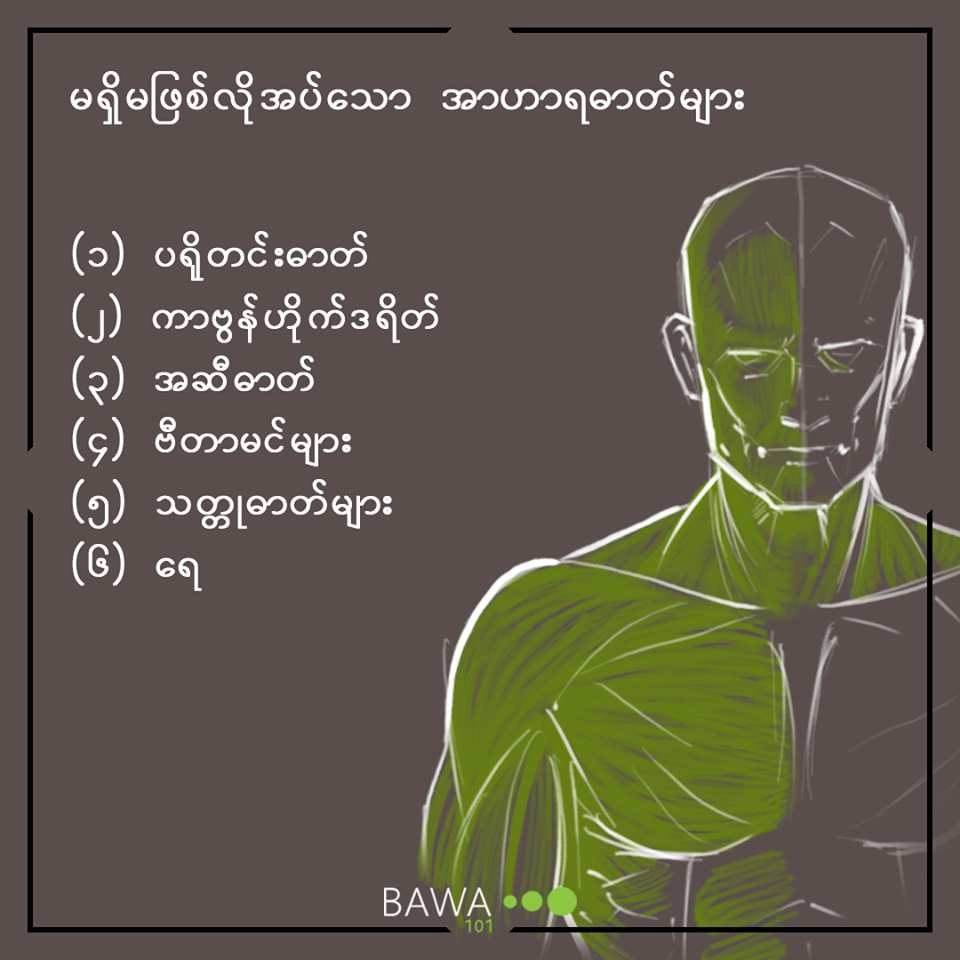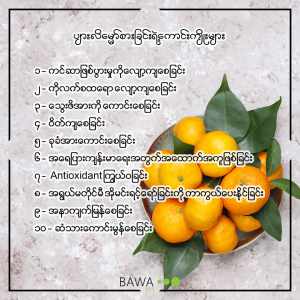Essential nutrients
"1) Protein Protein is important for every cell in the body. From bone to skin, from skin to hair, p...
"1) Protein
Protein is important for every cell in the body. From bone to skin, from skin to hair, protein is important. About 16 percent of the body's weight is obtained from protein. Protein helps the body grow and develop. It is necessary to be healthy and maintain the body. meat fish Eggs contain amino acids. soybeans nuts seeds You can get protein from various types of beans.
2) Carbohydrates
The body needs carbohydrates. It provides fuel for your body. Especially for the nerves and brain. 45 to 65 percent of your daily caloric intake should come from carbohydrates. seeds Beans It can be obtained from vegetables and fruits that are high in fiber.
3) fat
Fat is seen as a bad thing. There are also healthy fats. According to Harvard Medical School
Fat in your body can help absorb some vitamins and minerals. blood clots cell regeneration, Helps in muscle movement.
Between 20 and 35 percent of your daily food intake should be fat. Healthy fats can help control your blood sugar. It can reduce the incidence of heart disease and type 2 diabetes. Improves your brain function. It is also good for inflammation. It relieves arthritis and is also good for enzyme disease and cancer.
The most famous fatty acids are omega-3 and omega-6 fatty acids. Nuts seeds, It can be obtained from fish and vegetable oils. Vegetable oil is avocado, Olive oil and flaxseeds. Coconut oil is a plant-based oil that has many health benefits. But the fat of your fried food, butter cheese Saturated animal-based fats such as red meat and ice cream should be avoided.
4) Vitamins
There are 13 types of vitamins. Vitamin A Si Bisic and dito are essential for the body.
Each vitamin is essential for the body. When vitamins are not enough, health problems and diseases can occur. Vitamin is vision, Essential for skin and bone health. When you are full of vitamins, the risk of lung and prostate cancer decreases, and vitamins like vitamin C improve the body's immunity. If you eat enough vegetables and fruits, your digestive system will improve and you won't need to take other vitamin supplements.
5) Minerals
Like vitamins, minerals also help the body. body functions, to strengthen the bones To strengthen the teeth, To make the body's biological processes normal, It is important to be hydrated. Minerals like calcium help keep bones strong and control blood pressure. Aids in muscle contraction and stretching. Iron supports red blood cells and hormones. Zinc boosts your immune system and speeds up healing.
6) Water
I can live without food, but I can't live without drinking water. Hydration is important for every system in your body. It is important. 62 percent of your body is water. It improves your brain function and mood. It can cleanse the body of toxins and deliver nutrients to the cells. It hydrates the body and prevents constipation. Dehydration can make you tired easily and lose focus. It also slows down physical activity.
Not only do you drink water to stay hydrated, fruits and some vegetables can also provide hydration. Watermelon and mustard You can also get water from things like spinach.
One of the easiest ways to tell if your body is dehydrated is if your urine is pale in color when you urinate.
In order to achieve balanced nutrition, you can eat colorful vegetables without chemicals.
Translated from the link https://www.healthline.com/health/food-nutrition/six-essential-nutrients#takeaway.”
Protein is important for every cell in the body. From bone to skin, from skin to hair, protein is important. About 16 percent of the body's weight is obtained from protein. Protein helps the body grow and develop. It is necessary to be healthy and maintain the body. meat fish Eggs contain amino acids. soybeans nuts seeds You can get protein from various types of beans.
2) Carbohydrates
The body needs carbohydrates. It provides fuel for your body. Especially for the nerves and brain. 45 to 65 percent of your daily caloric intake should come from carbohydrates. seeds Beans It can be obtained from vegetables and fruits that are high in fiber.
3) fat
Fat is seen as a bad thing. There are also healthy fats. According to Harvard Medical School
Fat in your body can help absorb some vitamins and minerals. blood clots cell regeneration, Helps in muscle movement.
Between 20 and 35 percent of your daily food intake should be fat. Healthy fats can help control your blood sugar. It can reduce the incidence of heart disease and type 2 diabetes. Improves your brain function. It is also good for inflammation. It relieves arthritis and is also good for enzyme disease and cancer.
The most famous fatty acids are omega-3 and omega-6 fatty acids. Nuts seeds, It can be obtained from fish and vegetable oils. Vegetable oil is avocado, Olive oil and flaxseeds. Coconut oil is a plant-based oil that has many health benefits. But the fat of your fried food, butter cheese Saturated animal-based fats such as red meat and ice cream should be avoided.
4) Vitamins
There are 13 types of vitamins. Vitamin A Si Bisic and dito are essential for the body.
Each vitamin is essential for the body. When vitamins are not enough, health problems and diseases can occur. Vitamin is vision, Essential for skin and bone health. When you are full of vitamins, the risk of lung and prostate cancer decreases, and vitamins like vitamin C improve the body's immunity. If you eat enough vegetables and fruits, your digestive system will improve and you won't need to take other vitamin supplements.
5) Minerals
Like vitamins, minerals also help the body. body functions, to strengthen the bones To strengthen the teeth, To make the body's biological processes normal, It is important to be hydrated. Minerals like calcium help keep bones strong and control blood pressure. Aids in muscle contraction and stretching. Iron supports red blood cells and hormones. Zinc boosts your immune system and speeds up healing.
6) Water
I can live without food, but I can't live without drinking water. Hydration is important for every system in your body. It is important. 62 percent of your body is water. It improves your brain function and mood. It can cleanse the body of toxins and deliver nutrients to the cells. It hydrates the body and prevents constipation. Dehydration can make you tired easily and lose focus. It also slows down physical activity.
Not only do you drink water to stay hydrated, fruits and some vegetables can also provide hydration. Watermelon and mustard You can also get water from things like spinach.
One of the easiest ways to tell if your body is dehydrated is if your urine is pale in color when you urinate.
In order to achieve balanced nutrition, you can eat colorful vegetables without chemicals.
Translated from the link https://www.healthline.com/health/food-nutrition/six-essential-nutrients#takeaway.”





